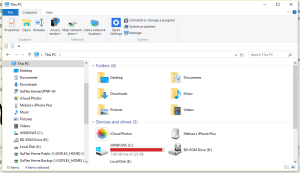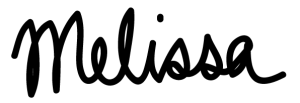Have you ever sat staring at the spinning cursor or beachball or hourglass, waiting for your computer to just. open. the. file?
Have you ever thought, maybe all these 40 000 photos are slowing down my computer? Maybe I should move them off onto an external hard drive?
The term memory means two different things here:
- Random Access Memory (RAM)
- Hard Drive space
The speed of your computer is usually more affected by Random Access Memory (RAM) than how much free space there is on your Hard Drive.
If you simply move your photos or files onto an external hard drive (EHD) you will just exacerbate the issue. Your computer's hard drive is much faster than any EHD.
Thanks to Fraser Spiers here's a good analogy to explain what is happening. I've edited it somewhat, but thanks to Fraser for putting these concepts in simple terms.
The Desk
Think of RAM as your physical wooden desk. It has a certain fixed size and, if you want to work on paper documents, you have to have them on your desk. The number of documents and books you can work on at once is limited by the size of your desk. If you want to work on more paper items at once, get a bigger desk.
Similarly, if you want to work with more files and applications at the one time, you need more RAM.
To find our how much RAM you have, head to the Help - System Info menu in the PSE Organizer. If your RAM is on the low end (8Gb or less), you will find that it may take a long time to load your Organizer catalog, or your computer may run slowly with lots of files open.
You can use the Crucial System Scanner to see if you can upgrade your RAM in your computer. Then you can order online or have your local computer store install it for you.
The Filing Cabinet
Think of your hard drive as your filing cabinet. It can hold many more paper documents than your desk, but you can't work on a document while it's hanging in a drawer. If you want to work on something, you have to move it from the filing cabinet to your desktop. That's the paper equivalent of loading an application or opening a file. If your desktop is already full, you need to put something back in the filing cabinet.
You keep a lot of things in your filing cabinet that you don't want to work on every day. Those older documents don't slow down your work at your desk unless you bring them out and put them on the desk. They can happily live in the filing cabinet forever ... until you fill the cabinet and then it's time to throw away the old stuff or get another cabinet. Similarly, the number of files on your hard drive does not seriously impact the performance of your computer, unless the drive is over 90% full. (You don't have any room, to put the files away when it's time to get out the new file, so you computer slowly puts away one sheet of paper each time if gets a new one out.)
If your computer is super slow as saving files (or makes "crunching" noises often) that's usually a sign you need more Hard Drive space.
 To find our how much Hard Drive space you have, head to the Apple - System Information menu or the This Desktop icon in Windows Explorer.
To find our how much Hard Drive space you have, head to the Apple - System Information menu or the This Desktop icon in Windows Explorer.
You can use the Crucial System Scanner to see if you can upgrade your Hard Drive in your computer. Then you can order online or have your local computer store install it for you.
Having a lot of files will not affect the speed of your computer unless the drive is 90+% full. So I have 2 terabytes of files on my hard drive with no issues.
I hope this helps explain the concept and gives you some next steps to make your computer less frustrating to work with.
Still confused? Just leave me a comment and I'll see what I can do to help!

I am an Amazon affiliate so may receive a commission if you make a purchase.
Leave a Reply